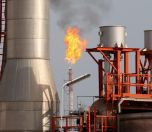Photo: Pixabay
Click to read the article in Turkish
After Iran announced on January 20 that it would stop natural gas delivery to Turkey for 10 days due to a "technical malfunction," Turkey had to restrict the industrial use of natural gas.
A day later, the Turkish Electricity Transmission Corporation (TEİAŞ) restricted natural gas use of factories by 40 percent.
TEİAŞ on January 24 announced a three-day restriction on electricity distribution to all organized industrial zones in the country. The restriction may be extended to industrial facilities outside the organized zones, according to some reports.
According to the restriction order, businesses are only allowed to use electricity for heating, lighting and security purposes between Monday and Wednesday and those using electricity more than the specified amount will be sanctioned.
Which businesses will be affected?
The restriction affected businesses in many sectors, from food production to textiles and heavy industry.
Amid concerns that the restrictions may cause an increase in food prices, food manufacturers have stated that a 72-hour power outage may threaten food security and food products stored in warehouses.
The Organic Product Manufacturers and Industrialists Association (ORGÜDER) and Turkish Milk, Meat and Food Industrialists and Manufacturers Association (SETBİR) demanded exemption from the restrictions.
After that, the state-run Petroleum Pipeline Company (BOTAŞ) ended the natural gas restriction on meat products and dairy manufacturers.
Record-high natural gas use
A day before Iran cut natural gas delivery, the use in Turkey was at a record high level of 290 cubic meters per day. After BOTAŞ imposed restrictions, it declined to about 225 million cubic meters.
A delegation from BOTAŞ visited Tehran in an effort to dissuade Iran from the gas cut, according to reports in the media.
Turkey's natural gas imports
Turkey's foreign dependency in energy rose from 67 percent in the 2000s to 74 percent in 2020. Russia, Azerbaijan and Iran are the top three natural gas exporters to the country.
Sixteen percent of natural gas consumed in Turkey in the first 10 months of 2021 was imported from Iran.
The failure to use natural gas storage facilities in full capacity is cited as the main reason for problems during delivery cuts.
Also, the money Turkey spent for energy imports increased in 2021 after a decrease in the previous year due to the coronavirus pandemic and the drop in oil prices.
According to the Union of Chambers of Turkish Engineers and Architects (TMMOB/UCTEA), the cost of energy raw materials import dropped by 30 percent to 28.8 billion dollars in 2020.
However, in the first nine months of 2021, the country spent over 31.5 billion dollars on energy raw materials. The annual cost is estimated to be over 40 billion dollars.
Idle capacity
While Turkey met 43 percent of its electricity needs from domestic resources in 2020, there has been a significant increase in the country's idle capacity in recent years.
Between 2010 and 2020, the country's installed capacity increased by 7.2 percent in each year on average. In this period, the installed capacity increased 1.94 times, whereas the power production increased 1.45 times.
According to a report by the Chamber of Mechanical Engineers (MMO), power plants aged between 0 and 10 make up 48.4 percent of the country's installed capacity. The low capacity ratios in such young facilities is something that needs to be explained, says the MMO.
The share of the private sector
While the share of the public sector in electricity production was 87.2 percent in 1984, it decreased to 18.1 percent in 2020. When problems occurred in electricity distribution in the past, state-owned plants would use alternative types of fuel to ensure the continuity of production.
What did the opposition say?
As Minister of Energy and Natural Resources Fatih Dönmez said, "our attempts regarding Iran are underway," the opposition criticized the government over the electricity and gas restrictions.
In a Twitter post on Monday, Kemal Kılıçdaroğlu, the leader of the main opposition Republican People's Party (CHP), said, "Power won't be delivered to industrial facilities for three days. This government has done this to this country. Of course, they have more important things to do. Raiding houses of artists at midnight, sending journalists to prisons for posting proverbs, ripping off their tongues... Bunglers!"
The main problem is the failure to store enough natural gas for the winter, according to Kılıçdaroğlu. While the occupancy rate in storage facilities was 54 percent in October, it is about 32 percent today, he said. It was 73 percent in January 2018, 72 percent in 2019 and 60 percent in 2020, according to Kılıçdaroğlu.
Peoples' Democratic Party (HDP) Vide Chair Garo Paylan submitted a parliamentary question to Minister Dönmez, saying that "You have put the country in an energy crisis. How can we trust that you will not cut electricity and natural gas for households?"
Democracy and Progress (DEVA) Party Chair Ali Babacan, a former economy minister, also pointed out the lack of storage, saying that not using the storage facilities in full capacity was an "unforgivable mistake." (TP/VK)







